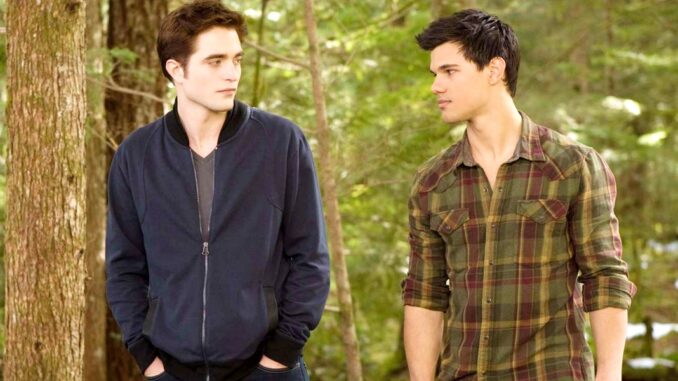
The roar was deafening, a collective, hormonal shriek that echoed around the globe. For a generation, the names Robert Pattinson and Kristen Stewart were less individuals and more the beating heart of a global phenomenon, shorthand for Edward Cullen and Bella Swan. They were the glittering vampire and his klutzy human beloved, the epicentre of a fandom so fervent it bordered on religious devotion. Their on-screen chemistry spilled over into a real-life romance, cementing their status as the ultimate "It Couple" in a gilded cage of public obsession. But beneath the vampire sparkle and the relentless flashbulbs, lay two young actors, barely out of their teens, wrestling with the seismic shift of becoming cultural icons overnight. The saga ended, the credits rolled, but the real story – their lives beyond the saga – was just beginning, a compelling narrative of artistic reclamation and defiance of the very typecasting that had made them household names.
The shadow of Twilight was long, stretching across every red carpet appearance, every new role, every whispered rumour. For many, Pattinson and Stewart would forever be tethered to Forks, Washington. The challenge was immense: how do you shed a skin that the world insists on seeing as your only identity? How do you escape an echo chamber of fan expectations and critics’ cynicism to forge authentic artistic paths? Their answers, while distinct, mirrored each other in their unwavering commitment to shedding the commercial veneer for something far more complex and artistically challenging.
Robert Pattinson, perhaps sensing the potential for eternal vampiric typecasting, embarked on a deliberate and often surprising journey into the cinematic wilderness. He didn't just walk away from blockbuster fare; he sprinted into the arms of auteur directors known for their esoteric visions and challenging narratives. His first major post-Twilight statement was David Cronenberg’s Cosmopolis (2012), a jarring, philosophical ride in a limousine, far removed from any sparkly forest. This was no bid for commercial success; it was a clear signal of intent. Pattinson sought out the uncomfortable, the abrasive, the psychologically intense. He embodied the grubby, desperate figures of The Rover (2014) and Good Time (2017), transforming his brooding allure into something raw and desperate. In Robert Eggers’ The Lighthouse (2019), he was utterly unrecognisable, a grimy, deranged lighthouse keeper locked in a bizarre power struggle, pushing his physical and emotional limits. These weren’t roles designed for heartthrob status; they were a dismantling of it, piece by painstaking piece, revealing an actor unafraid to be ugly, unlikable, or utterly strange, all to prove his depth beyond the fangs. His eventual return to the blockbuster with The Batman (2022) was not a surrender, but a re-entry on his own terms – a dark, tormented, and deeply human portrayal that felt earned, a culmination of years spent honing his craft in the indie trenches.
Kristen Stewart’s evolution was perhaps less a calculated pivot and more an organic unfolding of an already intensely internalised acting style. Often criticised during the Twilight years for her perceived stiffness or discomfort, Stewart’s post-saga work revealed those very qualities to be a fertile ground for nuanced, vulnerable performances. She, too, gravitated towards independent cinema, particularly finding a prolific and critically acclaimed partnership with French director Olivier Assayas. In Clouds of Sils Maria (2014) and Personal Shopper (2016), she delivered performances of exquisite subtlety and raw nerves, earning an historic César Award for the former. Stewart’s discomfort in the public eye, her often-frank and unfiltered responses, translated into an on-screen authenticity that felt revolutionary. She wasn’t trying to be charming; she was simply being, and that rawness became her superpower. She embraced queer cinema, took on roles that explored complex female identities, and eventually, startlingly, embodied Princess Diana in Spencer (2021). Her portrayal was not an impersonation but an inhabitation, a haunting, fragile performance that earned her an Oscar nomination and cemented her status as one of her generation’s most compelling and fearless actors.
Crucially, both Pattinson and Stewart succeeded not just in moving beyond Twilight, but in reclaiming their narratives. They didn't simply survive the fame; they transmuted it into the fuel for their own distinctive glow. Their shared trajectory speaks volumes about the courage required to defy public expectation and the insidious pull of easy money. They chose the path of artistic integrity, enduring years of smaller budgets, niche audiences, and critical re-evaluation, all to prove that the initial global phenomenon was merely a launchpad, not a limitation.
In the end, the glittering allure of Edward and Bella has faded into pop culture history, a nostalgic whisper of a bygone era. But Robert Pattinson and Kristen Stewart, the individuals behind the myth, have emerged not just intact, but transformed. They are no longer defined by the supernatural romance that made them famous, but by the substantial, daring, and often profound work they have created since. Their lives beyond the saga are not just a tale of two stars escaping a shadow, but an illustrative essay in the enduring power of artistic conviction, proving that sometimes, true brilliance shines brightest when it breaks free from the brightest of lights.
